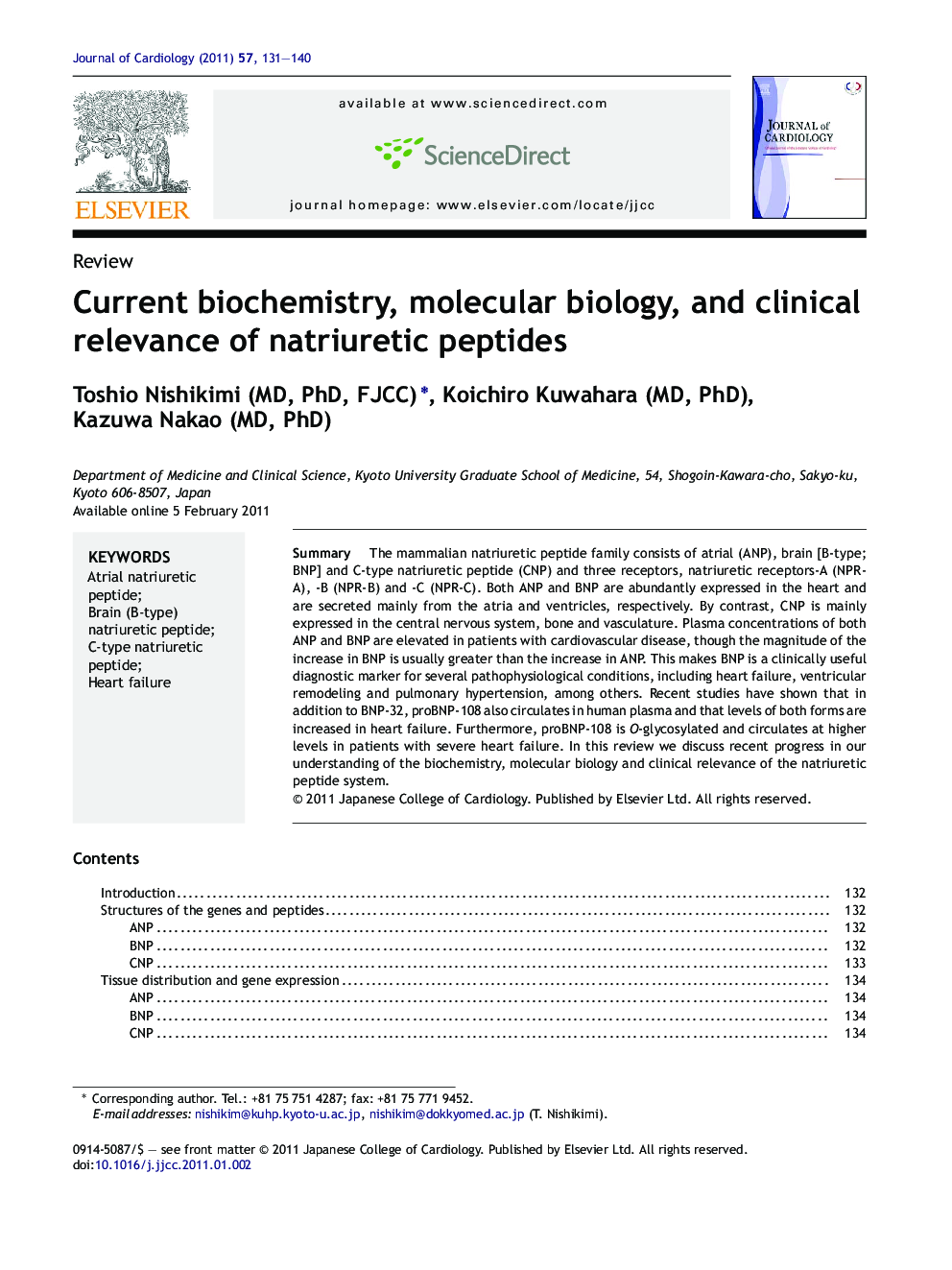| کد مقاله | کد نشریه | سال انتشار | مقاله انگلیسی | نسخه تمام متن |
|---|---|---|---|---|
| 2963371 | 1178555 | 2011 | 10 صفحه PDF | دانلود رایگان |

SummaryThe mammalian natriuretic peptide family consists of atrial (ANP), brain [B-type; BNP] and C-type natriuretic peptide (CNP) and three receptors, natriuretic receptors-A (NPR-A), -B (NPR-B) and -C (NPR-C). Both ANP and BNP are abundantly expressed in the heart and are secreted mainly from the atria and ventricles, respectively. By contrast, CNP is mainly expressed in the central nervous system, bone and vasculature. Plasma concentrations of both ANP and BNP are elevated in patients with cardiovascular disease, though the magnitude of the increase in BNP is usually greater than the increase in ANP. This makes BNP is a clinically useful diagnostic marker for several pathophysiological conditions, including heart failure, ventricular remodeling and pulmonary hypertension, among others. Recent studies have shown that in addition to BNP-32, proBNP-108 also circulates in human plasma and that levels of both forms are increased in heart failure. Furthermore, proBNP-108 is O-glycosylated and circulates at higher levels in patients with severe heart failure. In this review we discuss recent progress in our understanding of the biochemistry, molecular biology and clinical relevance of the natriuretic peptide system.
Journal: Journal of Cardiology - Volume 57, Issue 2, March 2011, Pages 131–140